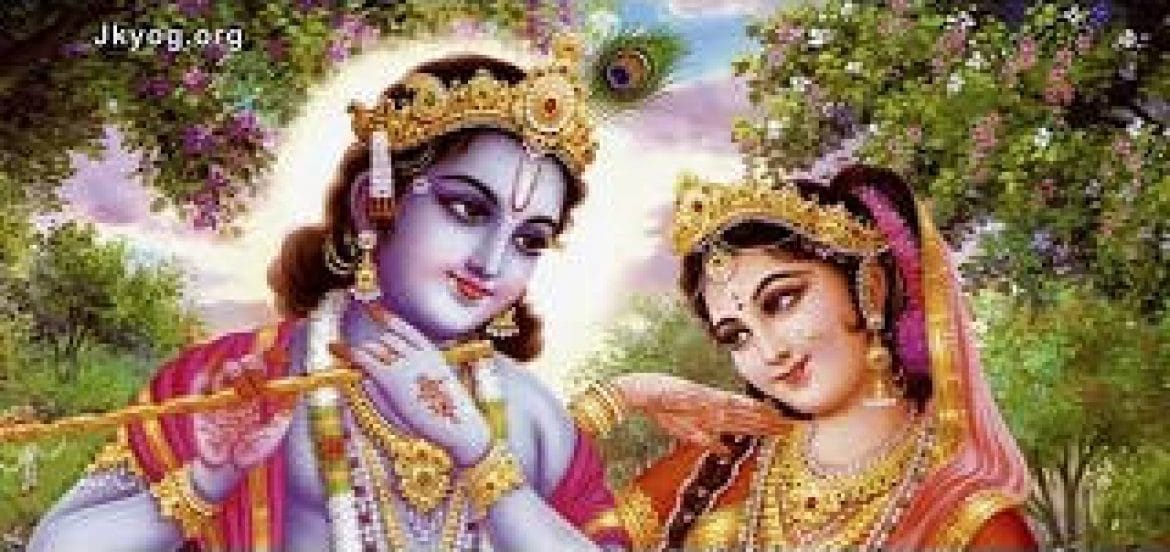Nishkam bhakti is the second criteria in perfecting our love for Krishna. It means sacrificing or abandoning all selfish desires and becoming completely selfless. This is especially important in light of ananya bhakti discussed previously. If we are to remain exclusively devoted to Krishna such that no one or nothing else resides in the heart, then we have no choice but to narrow down our list of desires to one and only one—happiness of Krishna.
All humans by their very nature are inherently selfish. This statement may seem shocking but let’s dig into it further. Let’s say there is a tight timeline at work and for one item, there is a disagreement within the group as to how to move forward. Even though our perspective might be the quickest or most cost efficient, we give in to others. We justify this by saying “for the harmony of the group.” While that may very well be reason, often, it is not the only reason and it is not the primary reason. The primary reason behind it is our selfishness—to protect our livelihood or to avoid the negative consequences or to appear as the peacemaker in the group or so that others will think of us positively and will provide good feedback that impacts our bonus. Clearly, there is a selfish motive. That does not make it wrong or bad, merely selfish. And we have to be selfish to a certain extent to survive in this world.
So let’s look another example closer to home. We all engage in some form of worship and/or service to Guru and God. Why? Because at the back of our mind we know that there is a reward; that we will get something. The reward may be different for all but there is a reward that will bring us happiness, in some shape or form. And that precisely is the point.
Shree Maharajji quotes from Ramcharit Manas:
jatae kachun nij swarth hoi, tapar mamta kare saab koi
sur nar muni saab ki yahae riti, swarth lagae kar he saab priti
meaning, we are inherently attached to those people or things where our self-interest is fulfilled. Nishkam bhakti means sacrificing this happiness for that of Guru and God.
True nishkam bhakti or completely selfless devotion means loving Krishna without any trace of selfish desires. Even when we love Krishna only with the purpose of His darshan (vision) so that He may grant us an opportunity to serve Him, there is a subtle and implied selfishness in this act. It is our desire to serve Him on our terms and so we seek His blessings. Nishkam bhakti implies not harboring this desire; instead the desire we should harbor is to serve Him according to His wishes—as, when, and how He desires. Nishkam bhakti then means truly aligning our desires with those of Guru and God. So this means that we are grateful and humbled if Shree Krishna chooses to bestow His presence upon us. If He does not, we should not get disheartened. Instead we should have faith that He will bestow His darshan when the time is right; until then we should continue with our practice of nishkam bhakti under the guidance of a true Guru.
This happiness that we all seek is the yog, the true union of the atmā (soul) with the paramatmā (Supersoul). Until this anand or bliss has been achieved, all our acts will stem from a selfish motive and we will be practicing sakam (selfish), not nishkam (selfless) bhakti. As a result, one who has attained this union, a God-realized soul, is the only one who is truly capable of performing true, selfless devotion or nishkam bhakti.
This may appear as a contradiction. On the one hand, we are told to practice nishkam bhakti while on the other hand, we are told that only a God-realized Saint can practice true nishkam bhakti. So what is the way out?
Swamiji explains in verse 7.18 of the Bhagavad Gita, “the materially motivated devotees cannot engage in such devotion but the devotee who is in knowledge rises to this level of selflessness.” This means that we must be cognizant of our selfish desires and strive to sacrifice them so that we have only one desire left i.e. to serve Krishna for his happiness. Some of the concepts explained in the blog on ananya bhakti can also be understood from the perspective of nishkamta as well. For instance, the kirtan line:
maiṁ āpako chāhūṁ aur pāūṁ, sansār kā kuchh rah na pāya
meaning, “May I love you and attain you, so that no worldiness remains in me” is just as relevant here too. It means we have to sacrifice all worldly desires. But it is our inherent nature to desire. So if we give up these worldly desires, what do we desire? The key is to divert this desire to a higher divine desire of loving Krishna—for his happiness only. As Sage Narad explained in Narad Bhakti Darshan, “tat sukh sukhitvam” meaning, desire the happiness of the beloved alone. Rupa Goswami, one of the disciples of Chaitanya Mahaprabhu said,
bhuktimuktispṛihā yāvat piśhāchī hṛidi vartate
tāvat bhaktisukhasyātra kathamabhyudayo bhavet
meaning, “So long as the two witches in the form of bhukti and mukti reside in the heart of an individual soul, the Supreme Goddess of Devotion cannot manifest herself.” Bhukti refers to material or worldly pleasures and mukti refers to liberation. Desire for either of them is a selfish desire. The only desire to reside in the heart should be to serve Guru and God on their terms—as they want it, when they want it, how they want it.
As we progress on this path, let’s keep this knowledge in mind and serve the Guru whole-heartedly so that one day, we too can become eligible to practice true nishkam bhakti.


